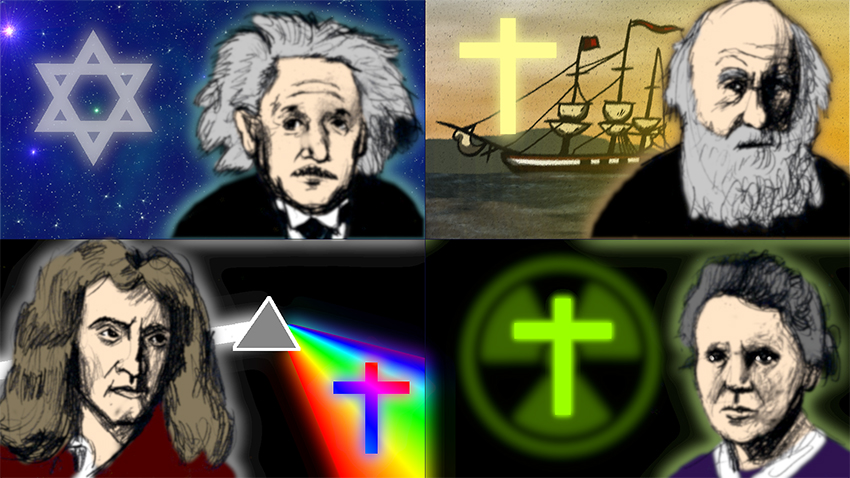The intersection of science and faith can be a diverse and storied discussion. This fall, the two met constructively in a sermon series held by Rev. John Elford at the University United Methodist Church on the UT campus.
Elford’s “God Loves Science” series preached that science and faith can coexist and even complement one another. Elford, who was a science student in college, said the series was also meant to assist students who have questions about how faith and science interact.
“Students hear things like, ‘You can’t believe in God,’ and, ‘Science and faith don’t make any sense,’ so I wanted to offer a series of topics on those sort of points,” Elford said.
Science and theology are complementary to religion, rather than conflicting, Elford said. The Methodist rules echo that stance, stating that Methodists should embrace science as a way to describe and make the most of God’s natural world, according to a Social Principles document of the Methodist Church.
Colton Grindal, a Christian and biology sophomore, said there are examples of science and religion intersecting positively.
“I would say science and religion have already overlapped,” Grindal said. “Many famous scientists were, in fact, religious people, and interpretations of the evidence that they found were through that context, that way in which they viewed the world.”
Elford said both seem to require an underlying faith or belief in some core principles.
“Faith in a religious sense would be confidence in trust in a creator, and that life is worth living. While faith in a scientific sense would be confidence in the reliability of nature, that things like the laws of nature can be repeated,” Elford said. “There is a basic faith or confidence in science and religion that are weirdly parallel.”
Grindal, however, said he believes science does not require faith and that it is more of a tool to understand the world around us.
Emma Sorrell, a senior aerospace engineer and women’s and gender studies major, is an atheist and said religion had its place in early civilizations, but believes it has since become obsolete and even harmful.
“I think that in the long run, faith is detrimental to science because it encourages you to take things at face value rather than investigate them further,” Sorrell said. “The difference is that science seeks to improve itself, while faith actively chooses not to change.”
Sorrell also said while they think religion is damaging to science, they won’t tell people to stop being religious.
“While I might personally believe that religion is a detriment to science, I’m not going to go around telling someone who is deeply religious to stop being religious,” Sorrell said. “I personally think there are good things that it has done, but the bad things it has done outweigh those.”
There are other times when science and faith can overlap constructively, Elford said. For example, they can come together to answer ethical questions such as homelessness.
“There have been times where I look at reports and studies of people who are moving from homelessness into affordable housing and the benefits it provides,” Elford said. “That informs what we do here at the church. We are always trying to support the idea of affordable housing. I think science makes a big difference.”















